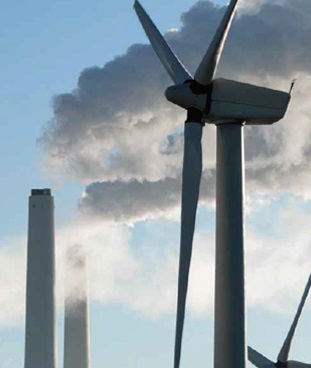Ex-CEFC boss tells Gov to step back
 The Federal Government should “get out of the way” of efforts to provide certain and stable electricity, a former CEFC chief warns.
The Federal Government should “get out of the way” of efforts to provide certain and stable electricity, a former CEFC chief warns.
Former Clean Energy Finance Corporation (CEFC) chief executive Oliver Yates said the drawn-out political debate over energy policy is paralysing progress, and that the Australian Energy Market Operator (AEMO) should have the space to work on keeping the lights on.
“If the Government just allowed AEMO to get on with the job of ensuring that we have reliable and stable supply, then it would probably become depoliticised,” Mr Yates said.
AEMO has issued a report warning the national grid is struggling to provide reliable supply.
In the wake of the report, Prime Minister Malcolm Turnbull called for the aging Liddell coal power station to be kept alive for an extra five years to avoid power shortages.
Mr Yates said the Government is taking the AEMO report out of context.
“AEMO never said that you're going to end up with critical crises or you're going to run out of power in 2022,” he said.
“What they said is the same thing as I say to my kid when they want to borrow the car: ‘If you want to borrow the car and you don't fill it up with petrol, you'll run out of petrol’.
“What AEMO said is that if you want to close down coal-fired power stations in 2022 or 2025, you need the policy and arrangements in place that enable you to release that capacity.”
Mr Yates said without the meddling of the Federal Government, Liddell owners AGL were the ones providing market certainty.
“AGL was kind enough to announce, almost two or three years ago, that they intend to shut down Liddell in 2022,” he said.
“Even under the Finkel review, they're only requiring that coal-fired power stations give three years' notice. AGL gave about seven.”
Mr Yates said investors were already making plans based on that information.
“At the moment, most of the industry is trying to replace capacity based upon a projected closure date of coal-fired power stations,” he said.
“That's very difficult if a prime minister walks into the room and basically says; ‘Well, I know you've been investing on that basis, assuming all this is going to happen, and you've been spending money developing projects, but I think I might just decide to legislate in some way and keep these clunkers open’.
“That doesn't help the market at all.”
Mr Yates also said more attention should be paid to the National Electricity Market.
“If you want to go back a few years, you'd say the failure happens to be the National Electricity Market, which hasn't built one interconnector of any substance between states to allow you to actually move the most transportable substance on the planet,” he said.
“South Australia has got in a position because the national regulator would not allow the construction of an additional transmission line so it could take power from Victoria or transmit power to Victoria.
“We've got an issue that we still don't have an additional cable from Tasmania.
“Tasmania could provide baseload capacity, it could be the battery to the National Electricity Market, but it is struggling to get a second Basslink to it.
“There's an enormous amount that could be done to deal with this and it's still not happening.”







 Print
Print